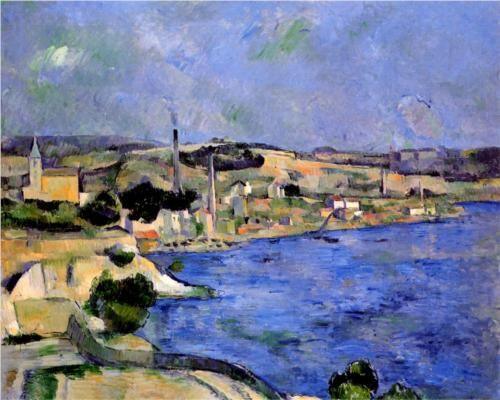Description
The Bay of Lestaque and Saint Henri is a masterpiece of the famous French painter Paul Cézanne. This painting is a perfect example of the Post-Impressionism artistic style, which is characterized by the exploration of form and color rather than the realistic representation of reality.
The composition of the painting is impressive. Cézanne uses a short, rapid brushstroke technique to create a sensation of movement in the water and in the sky. The horizon line is in the lower third of the painting, allowing the sky and water to take up most of the space. The view of the bay stretches towards the horizon, creating a feeling of depth and spaciousness.
Color is another prominent aspect of this painting. Cézanne uses a bright and vibrant color palette to represent light and shadow on the bay. Shades of blue and green blend to create a feeling of freshness and tranquility, while warm shades of orange and yellow in the sky suggest the arrival of sunset.
The history of painting is fascinating. Cézanne painted The Bay of Lestaque and Saint Henry in 1878, during a period when he was experimenting with the technique of plein-air painting. This painting was one of the first in which Cézanne used this technique, allowing him to capture the light and atmosphere of the bay in a more realistic way.
Also, there is a little-known aspect of this painting that is interesting to mention. Cézanne painted this work at a time when he was struggling with his artistic career. He had been rejected by the Paris Academy of Fine Arts and was struggling to find his own style. The Bay of Lestaque and Saint Henry was one of the first paintings in which Cézanne began to find his own artistic voice.

